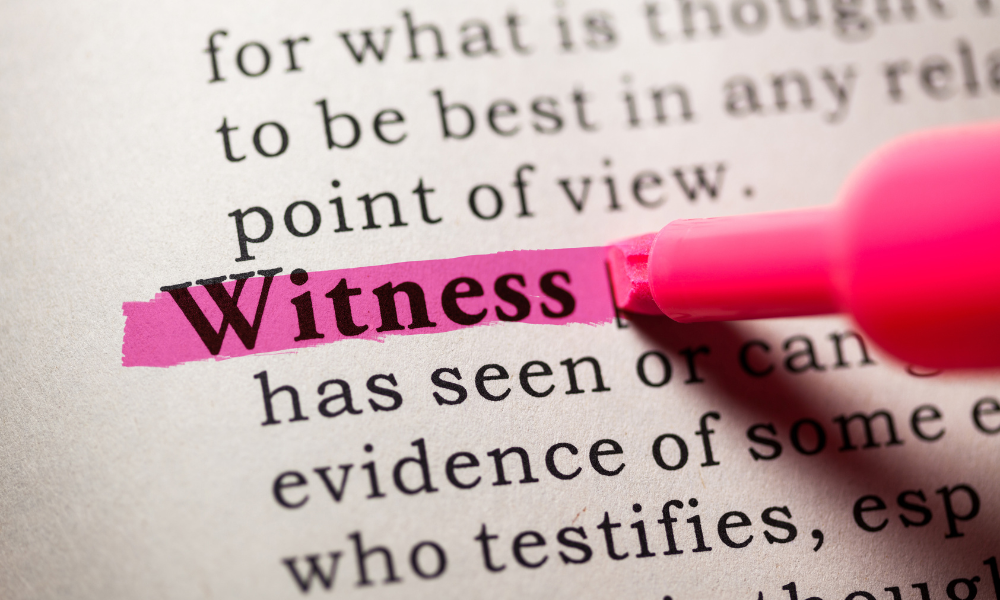
Diocesan Evangelism Enabler, Gareth Fitzpatrick, writes about how we are all called to be witnesses.
Confession time, I love a good crime drama and like to think of myself as a bit of an armchair sleuth. One of the most enduring crime dramas is the BBC’s Silent Witness. Each week a forensic pathologist and her team solve crimes by examining bodies. Although the victims cannot speak of their final moments, the evidence left on them testifies to what happened, and the team pieces the story together.
“Be my witnesses”
When I hear the word witness, I immediately picture someone in court, called to give an account of what they have seen or experienced first-hand.
Before ascending to heaven, Jesus’ final words to his disciples are recorded in Acts:
“You will receive power when the Holy Spirit comes on you; and you will be my witnesses in Jerusalem, and in all Judea and Samaria, and to the ends of the earth.” [Acts 1:8]
We are all called to be witnesses
Some argue Jesus’ words were directed only at the eleven disciples. Yet in light of the Great Commission (Matthew 28:18–20), where Jesus sends his followers to “make disciples… to the very end of the age”, it is clear this mission includes every believer until his return.
In this article I want to explore what it means to be a witness, as Jesus commanded, and how that looks in practice. For clarity, a witness is someone who gives an account—sometimes in words but always by example—of the life-transforming impact of the good news of Jesus.
We are ALL witnesses (whether we like it or not)
In Acts, Jesus doesn’t ask if the disciples want to be his witnesses. He simply says, “You will be my witnesses.” The same is true for us. If people know we follow Jesus, they will observe how we live, speak, work and treat others, and they will draw conclusions. They are not being harsh or judgemental; they are simply looking for evidence of what difference Jesus makes. If they like what they see, they may even want to know more.
There is a saying: “Be careful how you live. You may be the only Bible someone ever reads.” People are watching to see whether our lives look any different from theirs without faith.
So the question isn’t whether we will be witnesses, but rather: What kind of witness will we be? Will our lives point people towards Jesus, or push them away? The truth is, our witness matters.
Of course, none of us will get it right all the time. We will say things we regret, act in ways that misrepresent God, and fall short. But we live under God’s grace, and he is patient with us.
We don’t witness in our own strength
Take heart. Jesus also says in Acts 1:8: “You will receive power when the Holy Spirit comes on you.”
This promise meant everything to the disciples. Their Rabbi, who had led them for three years, was leaving. Yet Jesus reassured them that they would not be alone. They would receive power and boldness through the Spirit (cf. Luke 12:12, Acts 4:31) to speak and to live in a way that glorified God.
We too can feel isolated, especially in environments hostile to faith. But the same promise holds true today. We are not called to witness in our own strength but are equipped and empowered by the Holy Spirit. This doesn’t mean being a positive witness is easy, but it does mean we can be assured that God will give us the words to speak and the strength to live in a way that honours him.